Coach Kelley Hester took over the Furman women’s golf program in 2012. She has since brought the winning tradition back to the program with 2 wins in the fall at the Golfweek Program Challenge and the Furman Invitational and a recent win at the Florida State Matchup. The team also finished ranked 26th in the Golfweek rankings. She sat down with Recruit PKB College Consultant Brandi Jackson to discuss her coaching philosophy and advice to junior golfers going through the recruiting process. Check out part 3 of the interview.
What are good questions that a player should ask a college coach?
It is good for players to have information about tournament schedule, what kind of schedule is a team going to be playing? How does a coach determine who is going to go to the tournament? Are the players qualifying? Is a coach going to pick some? How far are the practice facilities? How much time am I going to be in the car? Because if there is one thing that every college student I have ever coached has said it is that “I don’t have enough time Coach.” Time is a precious commodity and when you’re trying to be a competitive college athlete, both academically and athletically, it becomes even more of a commodity. So I think that’s important. I think it’s good for players to know what a coach’s philosophy is in terms of what they value in their players. Workout times, I think that is important. If a coach is going to go at 6 AM then you need to be mentally prepared for that.
Is there anything a player can ask to help decide if personalities are going to be compatible?
Unofficial visits are crucial! Because, face time, there’s no substitute for face time. I don’t know if there are particular questions that you can ask but just seeing how a coach maybe interacts with their team. If you’re able to go to college tournament and watch how various teams are, the team chemistry and how the coach interacts with the team. Maybe how the coach is in the office and in their facility. Just like when coaches are recruiting players on their recruiting visits, you are just taking it all in. I think you got to go interact and be there and try to connect and develop a relationship with the coach. College coaches are bringing in 1 or 2, maybe 3 players a year, it would be rare to bring in more, so it’s very much about a family type of dynamic in terms of numbers. You’re not going to be one of many on the golf team in college, so all I’m gonna tell you is you’re going to get so much information, good or bad, and how things feel just by being around being around a coach and being in that environment. So I would recommend that you take unofficial visits, early and often.
What are good questions they should expect from a college coach?
I think that a coach is going to make an investment in a player, if there is scholarship that’s being exchanged, and in a lot of situations it is a quarter of a million dollars or more, and that’s a lot of money, so when a coach is going to make that type of commitment to a player then they’re going to want to know a lot about you and how you’re wired, how you do things. A coach may ask you to take an assessment, so you might want to be prepared for that, like a personality test, maybe a judgment index test (www.judgmentmatters.org) or something like that. I usually ask players “why they play golf”. I don’t ask them what they love about golf because that would be assuming that they do love it, but why they play. I can go ahead and say one of my favorite answers is “I just like to compete”. If a kid likes to compete then that means that regardless of the level they’re going to do whatever they need to do in order to be competitive. So I think that there’s some soul-searching type of questions and coaches all have different ones I’m sure but that’s my big one is to ask kids why they play golf. I think they need to be fully prepared to answer the questions as opposed to their parents, that’s typically a big of a red flag. It not that it’s all bad, it’s just that coaches are gonna be the ones to coach you, mentor you and develop a relationship with you, so you don’t need to be looking at your parent for help in answering every question. Coaches totally get that you’re nervous and you don’t want to say anything wrong but you’re not going to say anything wrong. You just need to let them see who you are. It’s basically a job interview and for some kids it might be their first. And good, bad or indifferent you need to show the coach who you are in your answers because there doesn’t need to be any false advertising on either side.
How important is strength/flexibility workouts for a junior golfer?
I think that most of these kids flexibility is probably not in issue but if it is then they need to take care of it. In terms of strength workout, I think it’s good to be open-minded that you’re going to need to do something like that once you get to college. I think there are mixed reviews out there about what age you should start working out. I think that you have to be a dummy not realize that there’s a fitness piece to golf in the direction that it’s going and that it’s going to be expected of you to be in good shape and take good care of yourself and to have workouts and to be all in with that. So if a student were to be surprised that it is going to piece of it then I would probably think they don’t really know what’s going on. But in terms of actually already doing it, some kids are more plugged in there than others. I don’t know that it would be a total negative to me unless somebody was physically weak. If physically they weren’t as strong as their counterparts I would encourage them to go ahead and start working on it some. But if a kid is pretty strong and a good athlete, I think the days are over of three and four sport athletes unfortunately. I played basketball, volleyball and ran track so I didn’t really have time to lift weights or do much of that because I was too busy playing other sports and there’s less of that now unfortunately. I think it’s great when you can have a multi-sport athlete, but I think they just need to be aware that that’s going be a piece of it but I don’t think they’re behind the eight ball if they haven’t done it yet.
How important is nutrition?
What I see more than anything is not what they eat, it’s that they don’t need it all. And you know there’s extremes where I’ve seen college coaches that gives players a bag of food at the start of a round and if it’s not empty when they get done then they have to run and do all of this other stuff. I mean, that is pretty hard-core. But at the same time, it’s unrealistic to think that you can do something for five or six hours and not feed your body. So we do have a nutritionist that we work. It’s all about education; kids have so much more information than we had when we were coming along. It was not uncommon to get a snickers and a coke at the turn, so most kids are aware that that’s not okay at this level. But I see kids with a lot of caffeine, that’s a problem. I see kids drinking a lot of sports drinks, that’s probably not where you need to be either unless it’s really hot outside and you’re sweating a lot. It really needs to be more water than anything or watered-down sports drinks. But some of that education, it’s a lot like the fitness piece, you need to be aware. You don’t see the girls or guys on tour eating snickers on the golf course. It’s when kids are close minded that it is a little hard. I once I had player who would only hamburgers, I mean on and off the golf course and that’s a nightmare and a bit of ignorance in there. And it was my job to help her work through that and increase her pallet to be more open minded and aware.
How can a junior golfer better prepare for college golf?
You know there are some things that you just can’t prepare for and I would say more than anything you need to prepare that it’s going to be hard. There are going to be times that you want to go home or you want to quit and just expect that it’s going to be hard so that when you encounter some adversity and things are hard it’s not a gut punch. So you know I encourage kids to obviously have good grades and work hard academically because wherever you go to college it is more than likely going to be more difficult than where you went to high school. I encourage kids not to procrastinate, that is a killer in college because it’s just hard to get caught up. So if you can be in a habit of “first things first” and taking care of what you need to take care of, then you are just going to be ahead of the curve when you get to college. And there’s a USGA initiative to tee it forward, but I say you tee it back because college courses are just tough. It’s not even that the yardages are that much longer but it’s that time of year, you’re playing in fall and spring and golf courses can play long and tough. So I encourage them test themselves, play 6300, 6400, 6500 yard courses. Play in the bad weather. Short game, short game, short game, keep working on that short game. It never fails that when our kids are given the option of where to practice they head straight to the tea and want to beat balls but when we have team practice we spend almost all of it around the greens and that’s because through our experience we know that a well-developed short game is going to win out, it’s how your score. I’m pretty sure that’s what the game of golf is all about, that bottom-line. So I encourage kids to keep working on that short game. It’s great to have a fundamentally strong golf swing and you need to be able to hit sold golf shots but at the end of the day it’s how you get it in the hole and that’s where you are going to spend most your time in college golf practices.



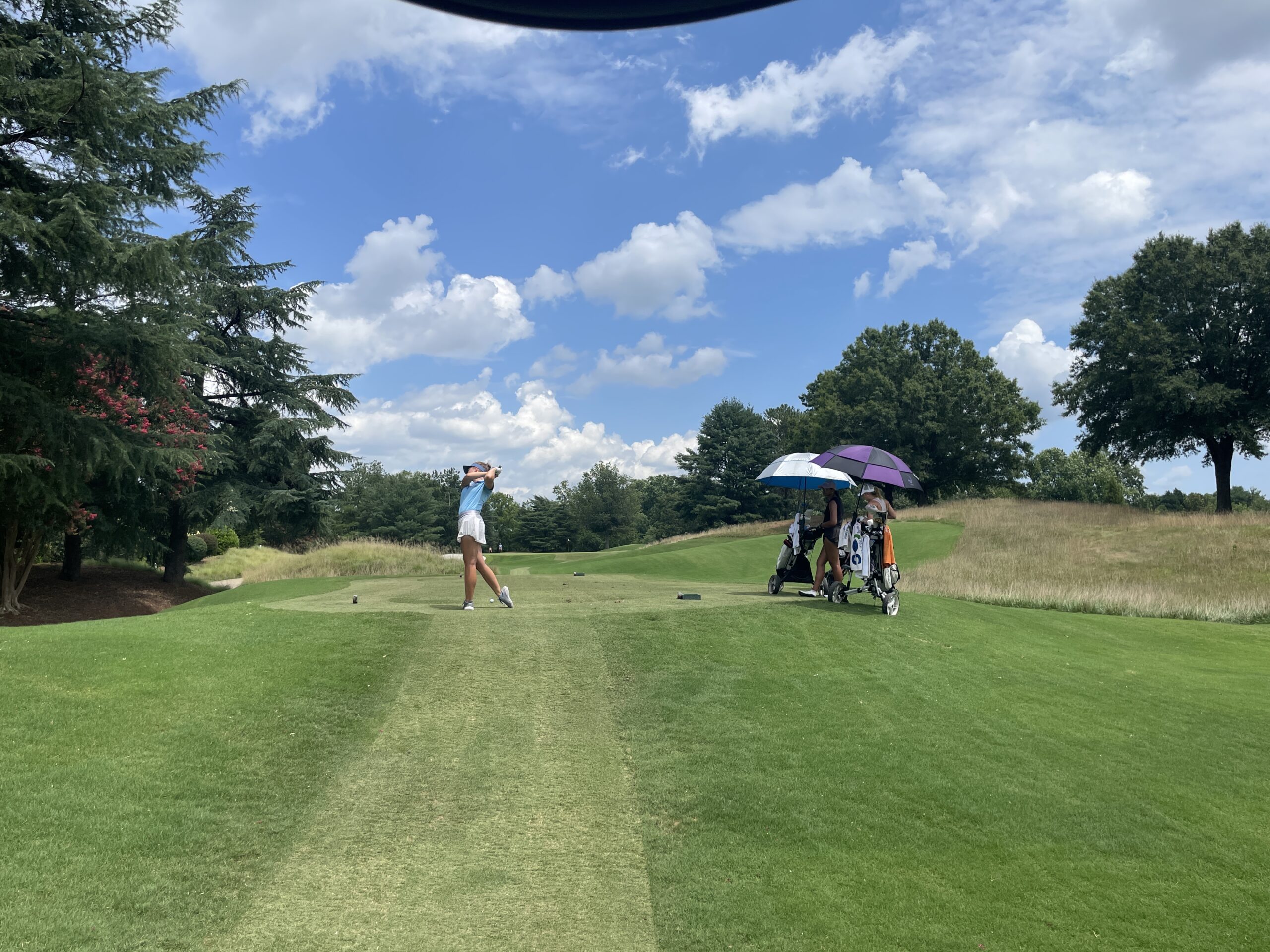
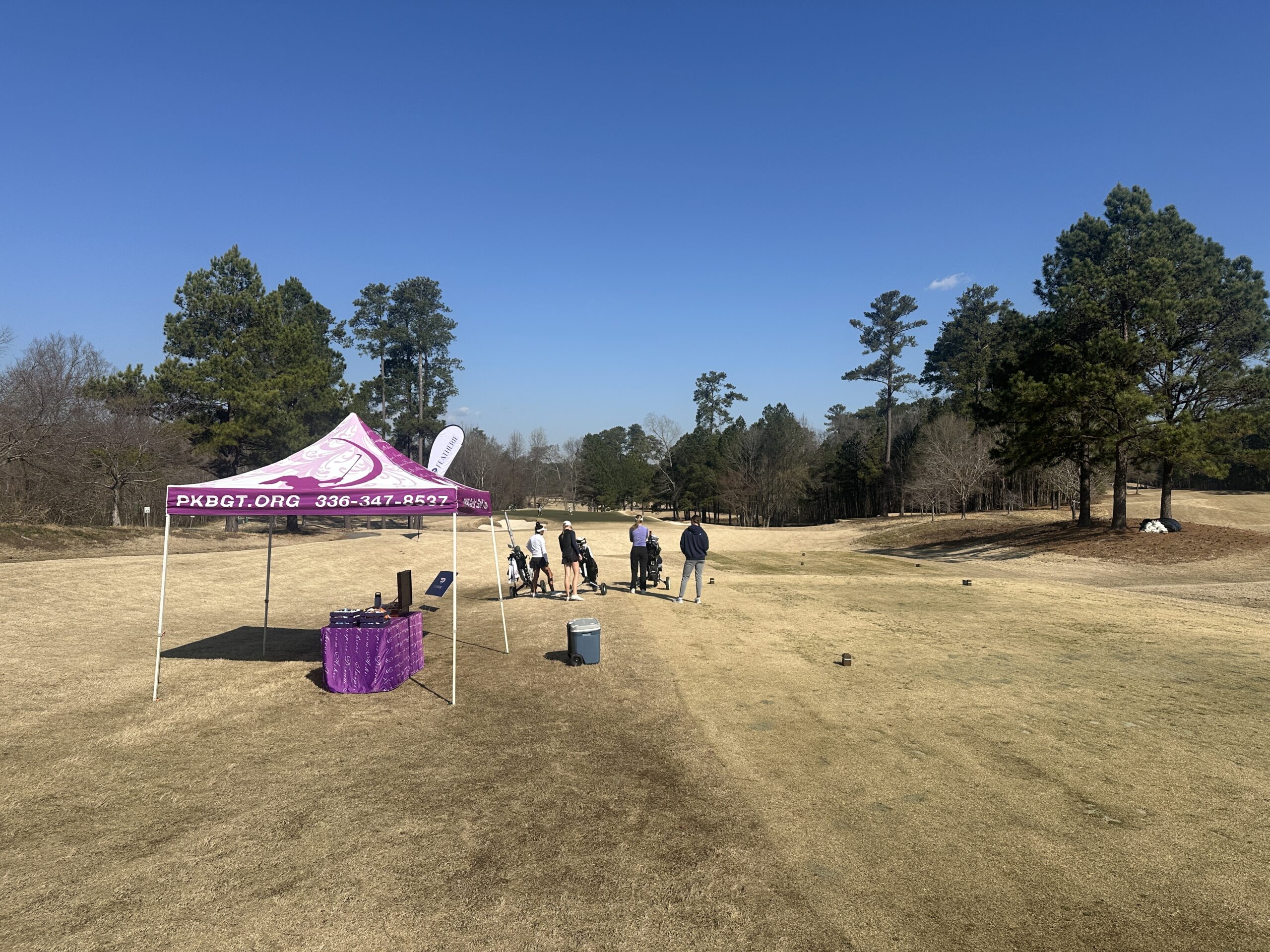
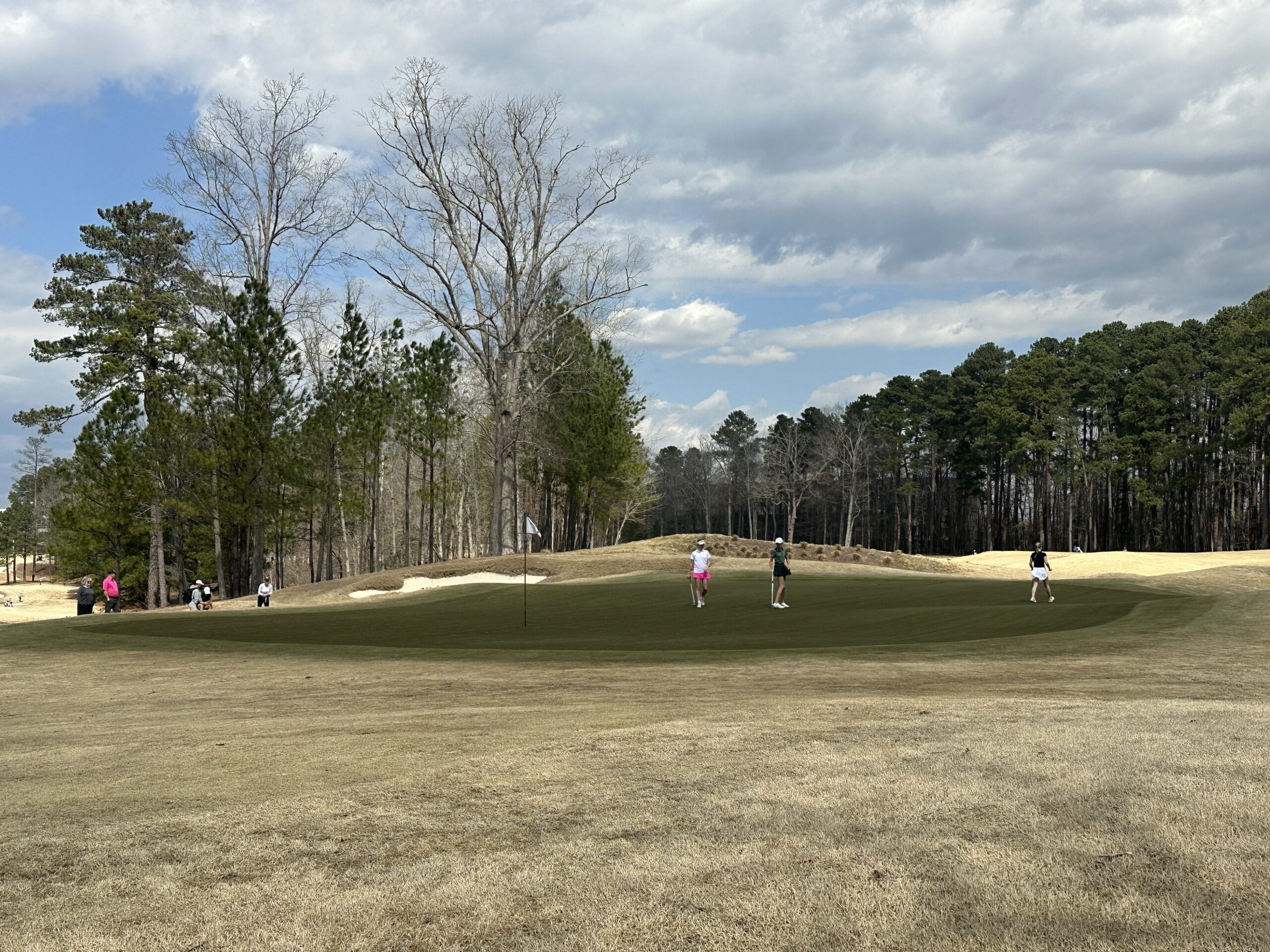
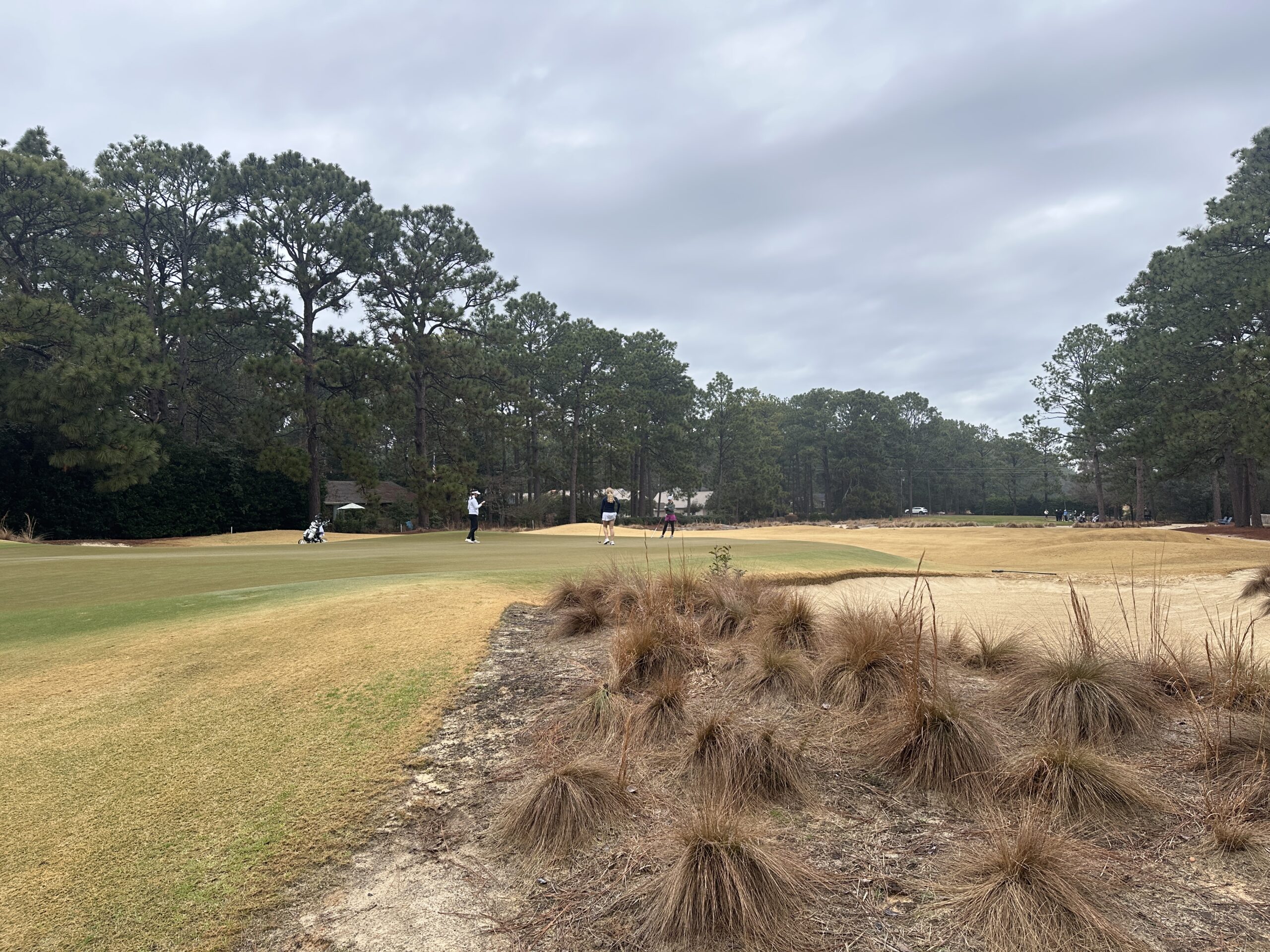
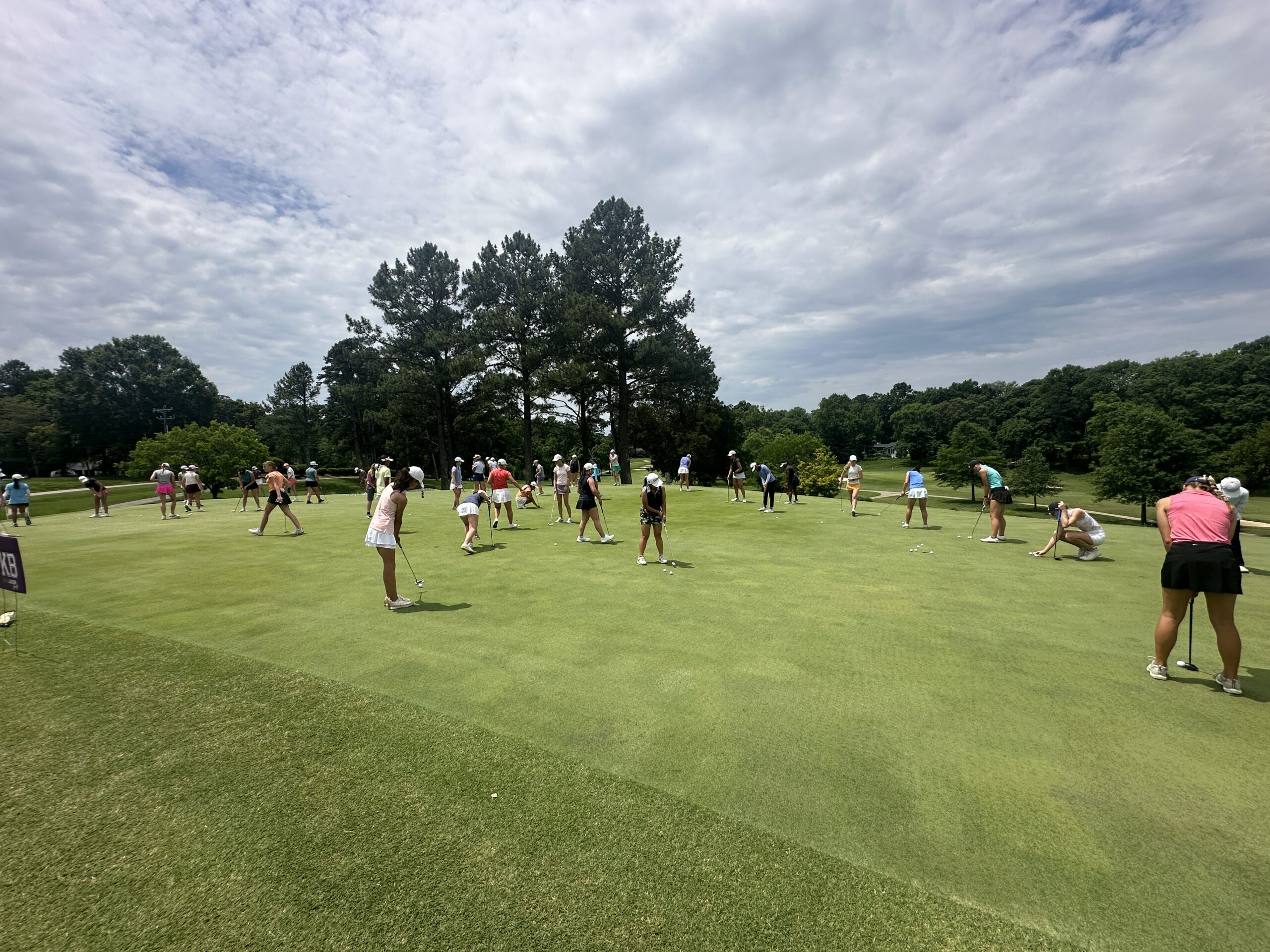
Leave A Comment